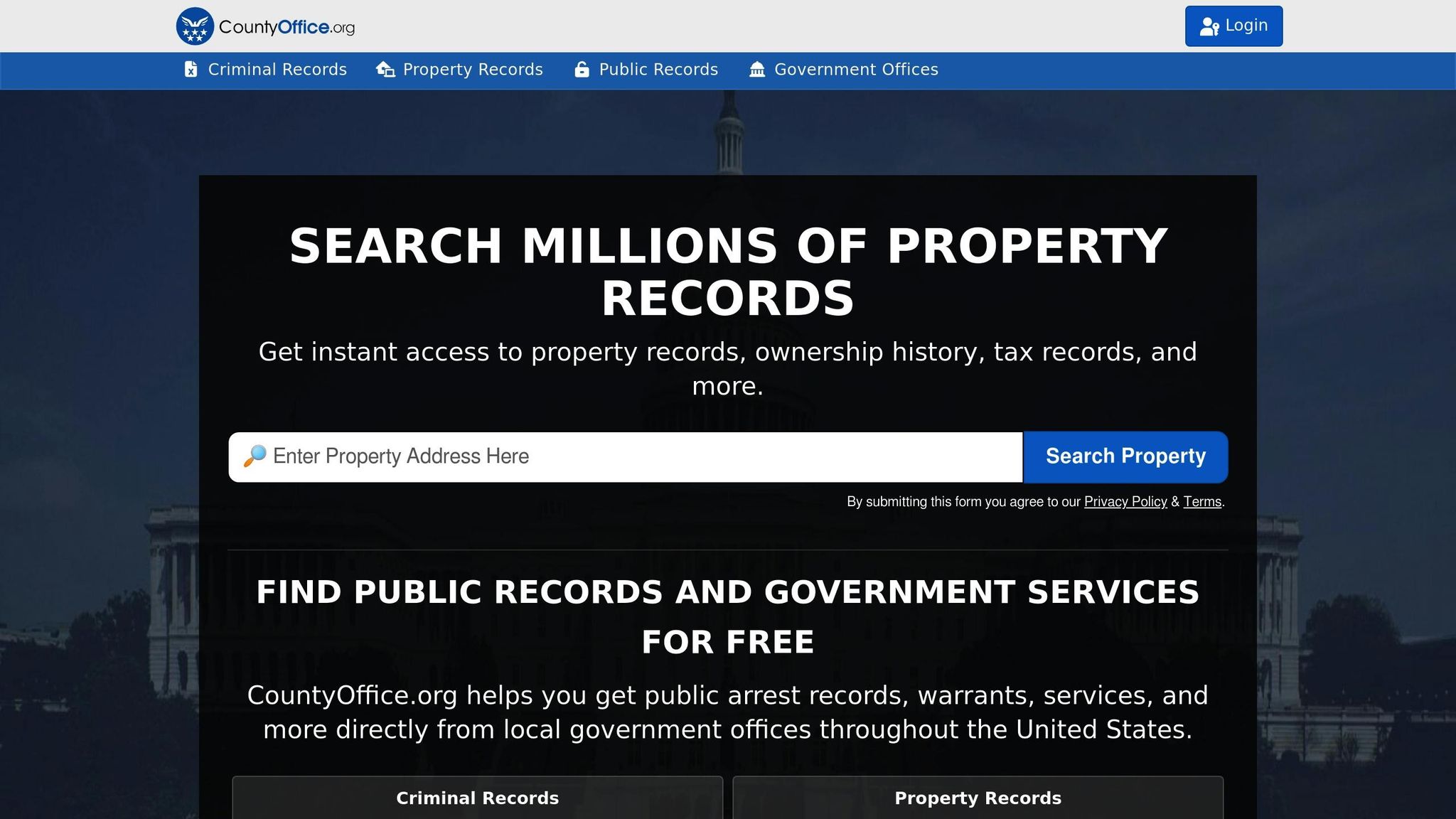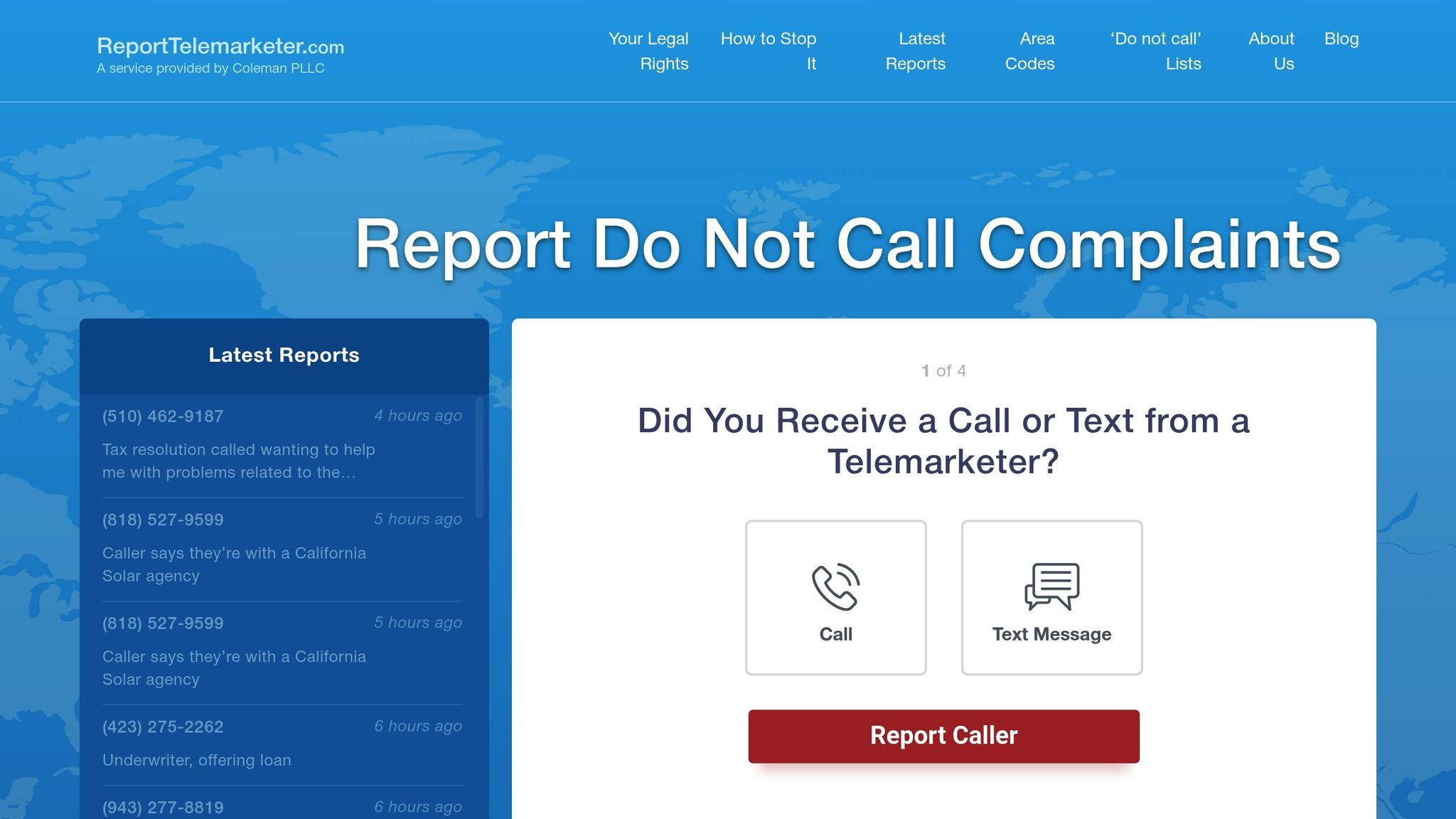
The Telephone Consumer Protection Act (TCPA) is a U.S. law designed to protect consumers from unwanted telemarketing calls, texts, and scams. It enforces strict rules on consent, caller identification, and communication methods, especially safeguarding vulnerable groups like seniors, people with disabilities, and those at higher risk of exploitation.
Key Takeaways:
- Consent Rules: Telemarketers must obtain written consent for automated calls or texts and allow revocation at any time.
- Vulnerable Groups: Seniors face financial scams costing $2.9 billion annually. The TCPA focuses on protecting them and others at risk.
- Penalties for Violations: Companies can face fines up to $1,500 per violation, with recent cases resulting in multi-million-dollar settlements.
- Special Protections: Includes rules for healthcare and financial communications, targeting fraud prevention.
- How to Act: Consumers can report violations and seek compensation for unwanted calls.
The TCPA empowers you to control who contacts you and ensures penalties for those who violate your rights.
What Is TCPA Compliance? – CountyOffice.org

TCPA Consent Rules and Protections
The Telephone Consumer Protection Act (TCPA) is designed to shield individuals from unwanted telemarketing calls and texts. At its core, the law establishes strict consent requirements that telemarketers must meet before contacting consumers, particularly when using automated dialing systems or prerecorded messages.
Written Consent Requirements Explained
The TCPA outlines two distinct levels of consent depending on the nature of the communication. For telemarketing calls or texts made with an automatic telephone dialing system (ATDS) or prerecorded voice to cell phones, businesses must first secure prior express written consent (PEWC). For non-telemarketing calls or texts using the same technologies, only prior express consent (PEC) is required. Notably, the Federal Communications Commission (FCC) applies the same consent rules to text messages as it does to calls, ensuring consistency across communication methods.
"The statute that prevents the use of certain regulated technology to make calls to cell phones and landlines without certain levels of consent – that are use-case specific – and prevents unsolicited marketing calls to phone numbers that are residential lines on the national DNC (Do Not Call) list."
- Eric J. Troutman, Troutman Amin, LLP and TCPAWorld.com
Starting January 27, 2025, new standards will require a direct link between consent and the communication in question, along with compliance with the E-SIGN Act. However, legal challenges have created uncertainty. For instance, on January 24, 2025, the Eleventh Circuit ruled that the FCC had overstepped its authority by introducing consent restrictions that conflicted with the statutory definition of "prior express consent".
Consumers also have the right to revoke consent at any time using any reasonable method. Businesses are prohibited from restricting how individuals can withdraw their consent.
"Consumers may revoke prior express consent for autodialed or prerecorded or artificial voice calls and autodialed texts in any reasonable manner that clearly expresses a desire not to receive further calls or text messages, and that callers may not infringe on that right by designating an exclusive means to revoke consent that precludes the use of any other reasonable method."
- Eric J. Troutman, Troutman Amin LLP
These consent requirements form the foundation for the FCC’s broader efforts to enhance consumer protections.
How the FCC Strengthens Consent Protections
The FCC has taken significant steps to close loopholes that previously allowed telemarketers to exploit consumers through questionable consent practices. One key focus is the "lead generator loophole", which had enabled companies to share consumer consent across multiple sellers. Under the updated rules, businesses must now secure individual consent for each seller rather than relying on blanket agreements.
"Lead-generated communications are a large percentage of unwanted calls and texts."
- FCC
To ensure compliance, comparison shopping sites must now use checkboxes or click-through links to obtain consent for each individual seller. Additionally, telemarketers are now responsible for proving they have valid consent before contacting consumers. Other measures include expanding National Do-Not-Call Registry protections to text messages and requiring wireless providers to block texts from numbers associated with illegal communications. These changes aim to provide stronger, more tailored protections for consumers.
The FCC advises businesses to review their consent practices, update contracts to reflect the one-to-one consent requirement, and conduct regular audits to ensure compliance. Companies should also reevaluate their existing leads to confirm they meet the new standards and secure fresh consent where necessary.
Case Studies: Penalties for Consent Violations
Violating TCPA consent rules can result in severe penalties. Each violation carries a fine of $500, which can increase to $1,500 for willful breaches. The FCC also has the authority to impose civil penalties of up to $10,000 per call for intentional violations.
Recent enforcement actions highlight the risks of non-compliance. For example:
- Citibank reached a $29.5 million class-action settlement for unauthorized robocalls about overdue credit card accounts made between August 15, 2014, and July 31, 2024.
- Blue Cross and Change Healthcare paid $1.6 million after making unsolicited robocalls to North Carolina residents without securing proper consent.
- A multi-level marketing company was fined $925 million in 2025 for making over 1.8 million calls that violated TCPA regulations.
- A satellite TV provider faced $61 million in penalties after a court awarded treble damages – $1,200 per violation – due to knowingly breaching the law.
These cases demonstrate the serious consequences of neglecting consent rules. Beyond financial penalties, such violations harm consumers, particularly those who may struggle to identify or stop unwanted communications. The hefty fines serve as both a punishment and a warning to deter future violations.
If you’re dealing with unwanted calls despite these protections, visit ReportTelemarketer.com to report violations and take action against non-compliant telemarketers.
Special Protections for Vulnerable Populations
The TCPA’s consent framework includes specific measures designed to shield groups most at risk from telemarketing abuse. These protections focus on individuals like seniors, people with disabilities, and those facing financial challenges – demographics often targeted by predatory schemes that exploit their vulnerabilities. These safeguards also extend into critical areas such as healthcare and financial communications.
Healthcare Communication Rules and Exemptions
Healthcare telemarketing presents unique risks, as it often exposes vulnerable populations to scams involving medical products or services. To address this, the TCPA enforces strict consent requirements for healthcare-related calls while ensuring legitimate medical communications can still take place.
One growing concern is the use of artificial voice technology in healthcare fraud. In 2024, the FCC classified calls using AI-generated voices as "artificial" under the TCPA, making voice cloning illegal without prior consent or a valid exemption. This ruling directly tackles scams where fraudsters use AI to imitate trusted voices, often targeting elderly individuals with fake medical emergencies or fraudulent health insurance offers.
Healthcare scams disproportionately affect seniors, immigrant communities, and individuals with disabilities. Fraudsters commonly use tactics like fake Medicare enrollment calls, bogus prescription discount programs, or counterfeit medical device offers to steal personal information or money.
"Do not call means do not call! Illegitimate and intrusive robocalls are out of control. I have heard from constituents who receive half a dozen or more calls per hour. As of late, Artificial Intelligence (AI) has made matters even worse by deceiving people into thinking they are talking to a friend or loved one in need of assistance, when actuality, they are talking to a bot." – Jan Schakowsky, U.S. Representative
These protections against healthcare-related fraud strengthen the TCPA’s overall mission to combat scams targeting vulnerable individuals.
Financial Protections Against Predatory Telemarketing
The TCPA also enforces financial safeguards to counter one of the most damaging forms of telemarketing abuse: fraudulent financial schemes. These scams often target vulnerable populations, creating devastating financial and emotional consequences. To combat this, the TCPA works in tandem with federal criminal laws, offering both civil and criminal penalties for predatory financial telemarketing.
Elder financial exploitation is a growing issue, with the U.S. Department of the Treasury’s 2024 National Money Laundering Risk Assessment reporting over $3 billion in annual financial losses due to such crimes. Federal law imposes harsher penalties for scams targeting vulnerable groups. For instance, under 18 U.S.C. § 2326, perpetrators can face an additional 5-year prison term for defrauding victims aged 55 or older. If ten or more victims in this age group are involved, the penalty increases to an additional 10 years in prison.
In 2023 alone, 56 million Americans lost more than $25 billion to robocall scams. These scams often involve fake debt relief offers, fraudulent investment schemes, or bogus government benefit programs, all designed to exploit those in difficult circumstances.
"Like millions of Americans, I’ve experienced the nuisance of constant robocalls. At best, these calls are an insatiable annoyance, and at worst, these calls prey on consumers by trying to undermine someone’s personal privacy and financial information." – Dick Durbin, U.S. Senator
The impact of these scams varies by region, with some states being hit particularly hard. For example, Illinois residents received nearly 2.2 billion robocalls in 2023, ranking sixth highest among all states. Many of these calls specifically targeted vulnerable individuals with financial scams.
"Predatory robocalls and texts bombard our phones everyday – harassing Americans and threatening our privacy and financial wellbeing." – Congresswoman Doris Matsui
The TCPA’s financial protections go beyond basic consent requirements, incorporating enhanced penalties to deter those who exploit vulnerable populations.
If you’re part of a vulnerable group and have been affected by unwanted telemarketing calls – particularly those related to healthcare or financial services – you can report violations through ReportTelemarketer.com. This platform specializes in identifying illegal practices and taking action to protect consumers from harassment.
sbb-itb-a8d93e1
Using Your TCPA Rights as a Vulnerable Consumer
Understanding your TCPA protections is just the first step. The real power lies in knowing how to actively use these rights to stop unwanted calls and safeguard your privacy.
How to Document and Revoke Consent
Keep a record of any consent you’ve given – whether it’s through sign-up forms, recorded calls, or digital opt-ins. These records can be crucial if you need to prove when and how you granted permission. When you’re ready to stop communications, you can revoke consent using simple, standardized methods like texting STOP or replying UNSUBSCRIBE. The FCC has outlined specific keywords that companies must honor as clear revocation requests, including stop, quit, revoke, opt out, cancel, unsubscribe, and end.
You also have the option to revoke consent through other channels, such as:
- Informing a representative during a phone call
- Sending an email
- Submitting written notice via mail or a web form
Once you’ve made your request, companies are required to process it within 10 business days. Afterward, they must add you to their internal do-not-contact list to prevent further outreach.
If your requests are ignored, it’s time to take action by reporting the violation.
Reporting Violations Through ReportTelemarketer.com

If a telemarketer continues to contact you after you’ve revoked consent, you can report the violation through ReportTelemarketer.com. Fill out their form with details such as the dates, times, phone numbers, and specifics of the calls. The service will investigate on your behalf, and if they confirm a lack of consent, they may issue a cease and desist letter or file a formal complaint – all at no upfront cost to you.
If the issue persists, you may want to consider pursuing legal action.
Legal Options and Compensation for Violations
Receiving unwanted telemarketing calls, prerecorded messages, or automated calls to your phone – whether a cell phone or landline – can be grounds for legal action under the TCPA. If a violation occurs, you could recover up to $500 per violation, and up to $1,500 per violation if the action was intentional or willful.
To strengthen your case:
- Document every detail of the unwanted calls or messages, including dates, times, and any revocation notices you sent.
- Be mindful of the statute of limitations, which is four years.
For vulnerable groups, such as older adults or individuals less familiar with technology, legal action can be a powerful tool to push back against aggressive marketing tactics and protect personal boundaries.
Conclusion: How the TCPA Protects Vulnerable Populations
The Telephone Consumer Protection Act (TCPA) plays a crucial role in shielding individuals, especially vulnerable groups, from the relentless wave of telemarketing abuse. By enforcing strict rules around consent and caller identification, it places the power squarely in the hands of consumers, allowing them to decide who gets to contact them.
"The TCPA is part of the federal response to the robocall epidemic. It’s the statute that prevents the use of certain regulated technology to make calls to cell phones and landlines without certain levels of consent – that are use-case specific – and prevents unsolicited marketing calls to phone numbers that are residential lines on the national DNC (Do Not Call) list".
The law doesn’t stop at setting boundaries – it backs them up with financial penalties. Telemarketers who willfully violate the TCPA can face fines of up to $1,500 per infraction. Considering that the average American deals with around 28.4 spam calls every month, these measures are a lifeline for maintaining privacy and peace of mind.
Key Points to Remember
The TCPA isn’t just about limiting unwanted calls; it’s about giving you the tools to enforce those limits. Here’s how it works in practice:
- Consent is king: Telemarketers must have your express permission before using automated systems to contact you. Plus, you have the right to revoke that consent at any time, using simple commands like stop or unsubscribe.
- Keep records: Document every unwanted call. This can be invaluable if you need to report violations or pursue legal action.
- Act promptly: Services like ReportTelemarketer.com can help you investigate and address violations. Legal action remains an option for up to four years after an infraction.
FAQs
How does the TCPA protect seniors and individuals with disabilities from telemarketing scams?
The Telephone Consumer Protection Act (TCPA) and Its Role in Protection
The Telephone Consumer Protection Act (TCPA) plays a crucial role in shielding seniors and individuals with disabilities from unwanted calls. One of its key requirements is that telemarketers must obtain prior express consent before contacting individuals, particularly on their cell phones. This rule helps reduce the chances of these groups being targeted by unsolicited or fraudulent calls.
Additionally, the TCPA gives consumers the power to opt out of unwanted calls, adding another layer of defense. Telemarketers who break these rules face hefty penalties, which act as a strong deterrent against deceptive practices. By enforcing these measures, the TCPA helps protect those who may be more vulnerable to scams and telemarketing abuse.
What should I do if I keep getting unwanted calls after revoking my consent?
If those annoying calls keep coming even after you’ve revoked your consent, it’s time to take action. Start by keeping a detailed log of every call – note the dates, times, and phone numbers. This record can be incredibly helpful if you need to escalate the issue.
Next, report the unwanted calls to the Federal Communications Commission (FCC) or your state’s consumer protection agency. These organizations can investigate and take action against violators. If the problem continues, it might be worth consulting an attorney. Under the Telephone Consumer Protection Act (TCPA), you could potentially seek damages if your rights have been ignored.
You can also take immediate steps to limit the interruptions by enabling call-blocking features on your phone or reaching out to your service provider for additional tools to stop these calls.
How can I prove I revoked consent under the TCPA if I take legal action?
If you’re planning to pursue legal action under the TCPA, one thing is essential: proving that you revoked your consent. To build a strong case, it’s important to maintain detailed and organized records of your revocation. Here are some ways to document your efforts:
- Written communication: Keep copies of any emails, letters, or text messages where you clearly requested to stop receiving calls or messages. These written records can serve as direct evidence.
- Call logs: Note the date and time of any phone calls in which you revoked consent. Include a brief summary of the conversation for added clarity.
- Acknowledgment: If the company responded to your revocation, save any confirmation they provided as proof.
These records can play a key role in showing that you took the proper steps to withdraw your consent, which could be critical if your case goes to court.